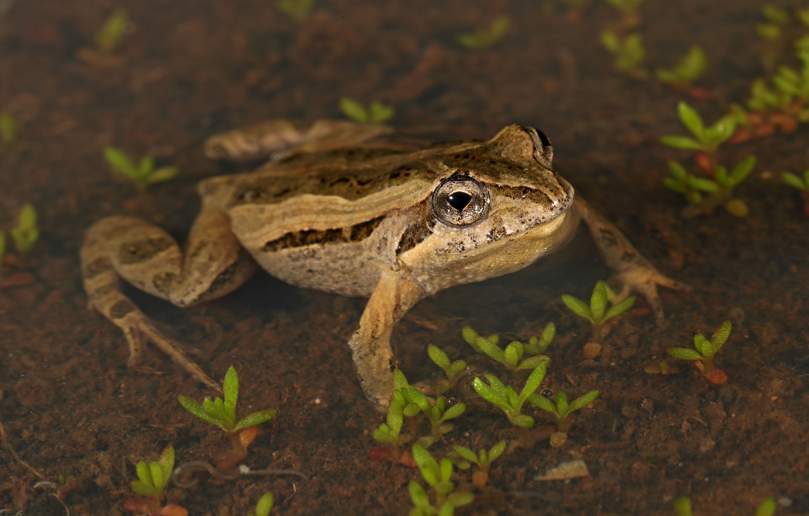The Frog of the Month for July is the Common Froglet (Crinia signifera) as part of the Goulburn Broken Catchment Management Authority’s 2022 Year of the Frog community awareness campaign.
The Frog of the Month for July is the Common Froglet (Crinia signifera) as part of the Goulburn Broken Catchment Management Authority’s 2022 Year of the Frog community awareness campaign.
The Common Froglet is found in the Goulburn Broken Catchment’s grey box grassy woodlands which are a focus of the GB CMA Linking Landscapes and Communities Project that works with landowners, communities, and Traditional Owners to improve this critical habitat. This project is supported by the Goulburn Broken CMA through funding from the Australian Government.
“The Common Froglet is, well, seemingly quite common,” GB CMA project officer, Janice Mentiplay-Smith said.
“This frog is found not only in the Goulburn Broken catchment, but across South-eastern Australia, ranging from the Adelaide region, along the east coast to Brisbane and south to Tasmania.
“Like many frogs, it is not as easy to see as it is to hear, as a chorus of males call all year round with a crik-crik-crik. It has adapted to live in a variety of habitats, hence its widespread range throughout Australia.
“It’s a tiny frog, measuring at around just three centimetres. Like many species, it exhibits a variety of shades and markings, all of the ‘brownish’ nature.”
Ms Mentiplay-Smith said despite its ‘common’ moniker, the Common Froglet was a species we should not take for granted.
“All frogs are at great risk of the Amphibian Chytrid Fungus which has decimated frog populations around the world since the 1980s and 90s,” she said.
“The chytrid fungus is highly infectious. It lives in water, on plants and in the soil – all the places frogs come into contact with. It invades the outer layer of the frog’s skin, effectively shutting down the frog’s ability to regulate respiration, water, and electrolytes. The frog goes into quick decline and dies.”
Ms Mentiplay-Smith said in Australia, chytrid fungus has been directly implicated in the extinctions of at least four species of frog and has dramatically reduced populations of at least 10 others.
“There are no proven methods of controlling chytrid fungus in the wild. The best we can do is protect the yet uninfected areas. Practically, this translates to protecting your own property.
“For example, don’t bring in frogs from other regions to ‘populate’ the garden pond or farm dam, as they may be infected with the chytrid fungus. Similarly, don’t dig up water plants and soil from one location and plant them at another.”
“If you are bushwalking or exploring different areas, make sure you thoroughly wash down your walking boots, preferably with bleach, before returning home to your property.
“Another way to stop the spread is to never handle frogs, as you may also be handling – and transporting – the chytrid fungus. If it is necessary to handle frogs, such as to rescue it from a precarious situation, use a plastic bag as a ‘glove’.”
Throughout 2022, the Goulburn Broken CMA and partners are celebrating the Year of the Frog, featuring a local frog species each month. For more information contact Janice Mentiplay-Smith on 0418 316 169 or email: janicem@gbcma.vic.gov.au

Common Froglet. Photo by Chris Tzaros.